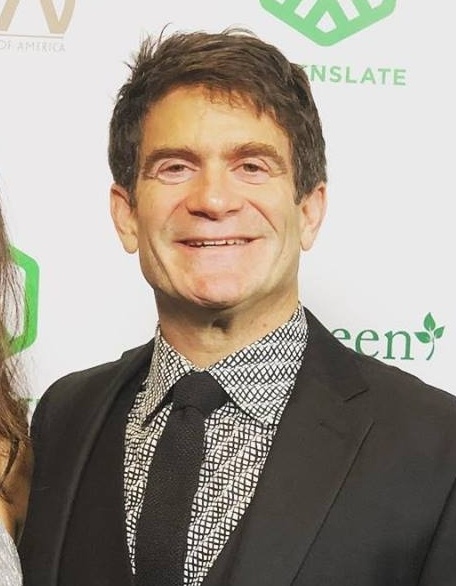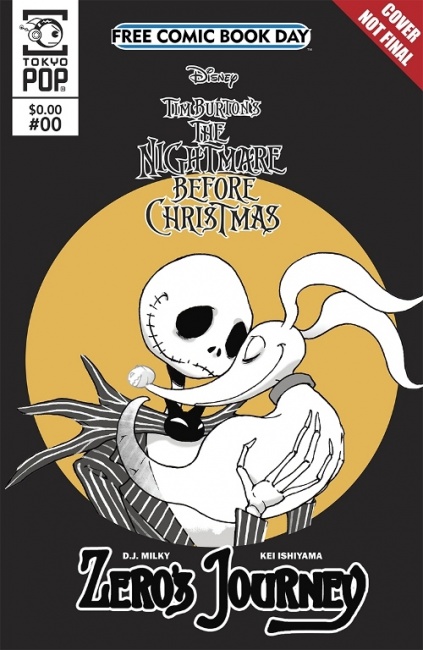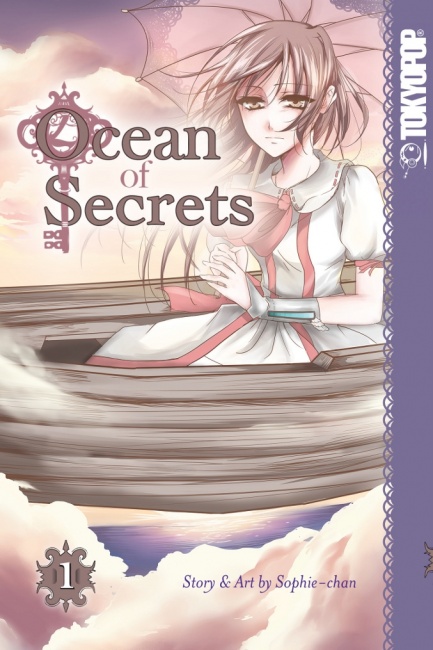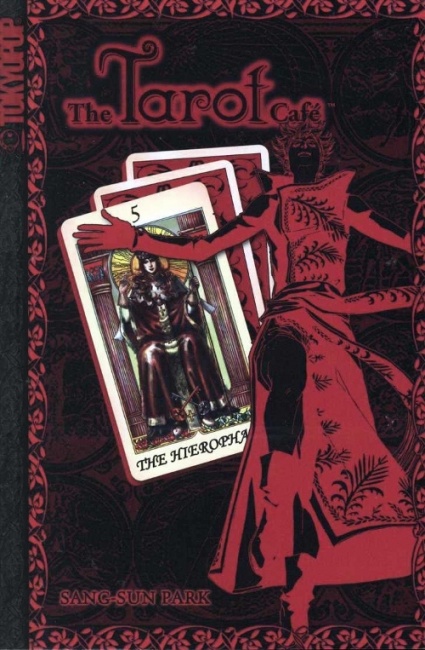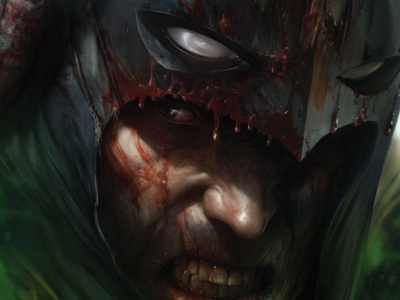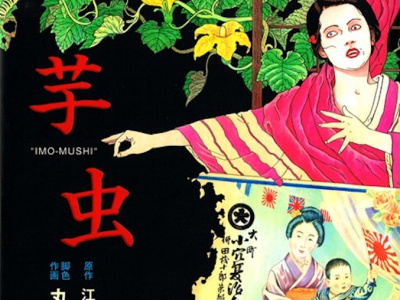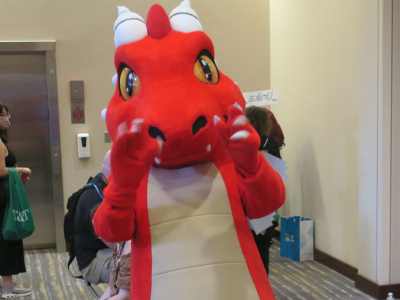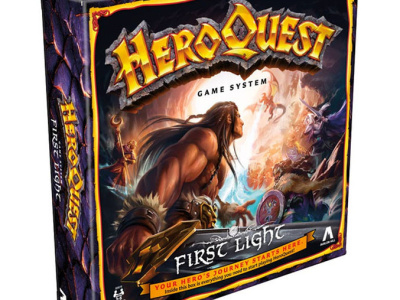We caught up with Tokyopop CEO Stu Levy to talk about his views on the marketplace, his decision to take the company back into licensing Japanese titles for U.S. release, and the key releases in the pipe.
Maybe you could give your thoughts on the overall state of the market for US manga, and for the kinds of graphic novels that you're publishing right now?
Stu Levy: Sure. My caveat to begin with is that it's really only been about 18 to 20 months since we started publishing again. It took us a while to even ramp up to doing what we are right now, we're at about two books a month, and then from summer, I think we'll run about five or so.
It's really nice to see comic book shops participating in the market. I know overall, there's ups and downs with comic book shops. What I see, at least from our point of view, is a lot of shops being willing to do family‑friendly stuff, and expand beyond superhero.
Because we haven't been doing hardcore manga, I can't really speak to comic book shops' ability or willingness to stock a bunch of manga. I just think so far with our Disney titles, and some of our new international limited manga titles, creator‑owned stuff, they're really good customers. That's something I've appreciated.
Barnes & Noble, from a retail point of view, is really the chain that seems like they're ordering the most. They really are moving the needle more than anyone. Certainly, some of the regional chains like BAM, Chapters‑Indigo up in Canada, they're doing well.
Then, of course, it's Amazon, but Amazon doesn't really buy in big buys in the beginning. They take a little bit of stock, and then they build it up as books sell through.
It's hard as a publisher with Amazon because you just don't know how much they're going to end up ordering. It's different than the traditional method where there's not a big buy‑in, and then they sell the stock, and then they return it if it doesn't sell. It's definitely a different model.
My biggest concern is, frankly, the health of Barnes & Noble. I really, really hope that they're healthy, and that they continue to be the presence that they are. Some of the announcements that they've made lately have made me concerned.
Near my house, there's a store closing that just happened in Santa Monica, Barnes & Noble. It just makes me nervous, because I went through the whole Borders thing, and the last thing we need is Barnes & Noble to have a problem like that and go out of business. It would really, really be tough for everyone.
I follow that pretty closely, and their balance sheet looks pretty strong, so that's good. They have a bunch of really tough underlying trends, and basically, they have too many square feet.
It's definitely a question. Hopefully, like you said, it's more that they have a strong balance sheet, and that they have to readjust their business. You just never know with these kinds of companies, because Borders management were just basically raping that company.
Retail in America, [laughs] I'm certainly not an expert. We just do our best to get our books to customers who want them.
Let's talk a little bit about these Japanese licenses (see "Tokyopop Back in Japanese Manga Biz"), because for companies that knew the old Tokyopop, that was exciting news. Why did you decide that this was a time to get back into Japanese content?
That's a good question. I feel like in general, most of the main Japanese licensors are covered in the US market. Certainly, Kodansha has their subsidiary, and they could publish Kodansha titles, while VIZ, with Shogakukan and Shueisha covers those.
Then you've got basically two more companies, Yen Press and Seven Seas. Yen Press has a particularly strong relationship with Kadokawa, because I think Kadokawa bought half their company, if not the whole thing, with Square Enix.
Seven Seas, I'm very impressed with what they've done. They've really, as an independent manga publisher, built something strong. They've been able to discover a lot of gems that have gone on to be hits.
I'm probably the most impressed with them considering they don't have any ownership from Japan, totally independent, and they built what seems to be a really solid manga business.
There are some other guys who kind of dabble. UDON does some good stuff, and Dark Horse, of course. Generally, those are the four main players.
For me, the question was as Tokyopop, do we bring any Japanese manga out? Is there any room for us too? Is there any reason for us to?
When we looked around, we thought, first of all, our European company, our company in Germany is the market leader. We publish tons of Japanese manga, and we have deals with all the licensors, so part of our company's already publishing Japanese manga. We already have the ability to license.
It just seemed like if there are titles that are not getting released in the market that are good titles, then there's an opportunity. We decided to pick a few and do it, but I don't really see us as really ramping up and trying to elbow our way in with VIZ and Kodansha, and Yen Press and those guys. That's not our plan.
We'll cherry‑pick if there's a couple things that people aren't publishing, and try to provide the fans with the collectible version that they can't just get through the pirate sites, but they really have to be the right content.
That takes us to the next question, which is why these particular titles? What did you like about them?
One, we do believe that one of our key elements has always been diversity, and in our case, global manga. One aspect of diversity, of course, is LGBT culture. We used to have an entry called Blue, and we were most likely, at the time, the leader in publishing boys' love, yaoi titles.
While there's still some of those titles on the market being published by, for instance, SuBLime from VIZ and a few other players, I think there's a lot of really good boys' love titles that don't get published.
That was one area, and Hanger is a solid newer series. We're publishing it in Germany, as well. We have a really good boys' love line in Germany, so it made sense for us to publish it in Germany and in English language, too.
From the same licensor, there's Konohana Kitan, which is a real cute series, kind of fantastical, but more character‑based series that has an anime that's also doing well and really cute, and so seemed like it would be a fun one to put out.
The last one, Futaribeya, of the three that we've announced, technically it's very, very soft yuri. For us, yuri's an interesting category depending on how it's done. We don't really want to do yuri if it's too much from the male gaze, but if it's yuri that our editorial team feels really represents the, at least to a certain degree, LGBT view on things, then we want to find a way to put it out.
That particular title, there's not anything sexual happening. It's just a cute relationship roommate title that has a yuri bend to it. Each one of those three titles, there's a reason why we decided to bring them out.
Are all three of those from the same licensor?
That's Gentosha. There's a couple other titles we'll be announcing pretty soon that are from some different licensors.
What is your overall plan in terms of the mix between the world manga, or the non‑Japanese titles that you're publishing, and the Japanese titles?
We don't really have a percentage, per se, because I think, or at least, I feel like the world is kind of moving beyond which manga comes from Japan and which manga does not come from Japan. I think there's enough manga‑influenced work going on worldwide, whether it's manhua in China or webtoons in Korea, or Euro manga.
Whatever you want to call the different influenced geographical versions of manga, at the end of the day for us, it's really about good storytelling, interesting characters, a lot of the times an author, creator that we also find interesting, and just the whole package, and being able to put something out that we think qualitatively people will be interested in reading.
How do you define manga for our readers who might think of it only as Japanese?
There's a lot of people who have different opinions on that, [laughs] so probably whatever I say will most likely have a number of people disagreeing.
Because my personal background is coming from spending lots of time in Japan even before getting into manga, and really coming from the culture point of view as opposed to an American fan point of view, I only really learned the word manga as a Japanese person learns the word manga, which means in essence all sequential art. It's just a Japanese word to mean sequential art.
What the English nuance of the word manga has come to mean is the stereotypical or the common approach to sequential art that originates from Japanese comic book creators: less panels per page, less dialogue, a lot of different visual angles. There's a lot of little techniques in the way that manga's created that I think in general in Japan, they're used in a very common way. Not necessarily outside of Japan, although I think, again, that's changing, and the word manga has come to symbolize that.
Certainly, a number of the properties that have been picked up and turned into anime also have similarities, especially in terms of the fanbases they appeal to. I think that's helped to kind of solidify the image of what manga is to a non‑Japanese fan.
Whether you use that word, or like in Korea, manhwa (which now, really they use webtoon a lot more, because webtoons are really originated on the phone, or on the computer), but manhwa is the same characters as manga in Japan. Manhua, which is the Chinese, it's also the exact same character.
From a language point of view, they're all exactly the same word, just pronounced in their respective language's pronunciation. But certainly, Chinese manhua is starting to have its own nuance. Europe, the French manga comes from a bit of a bande dessinee influence, like inevitably you would think they do. I think you see that wherever manga creators are, whatever their background, they're providing their own influences, and then it comes out in the product.
For our retailer readers, what are you expecting the biggest Tokyopop releases to be this year?
Certainly, by far, our biggest project is Nightmare Before Christmas ‑‑ Zero's Journey.
We're really lucky to be able to launch the first true extended storytelling outside of the original movie. It's technically not a sequel, but it's a spin‑off. It's all original storytelling.
We're working very closely with Disney on it. Tim Burton is making sure that he's seeing everything and approving everything, and we've got a great creative team behind it.
We're doing a really interesting hybrid format, where it's a comic book format, but it's really manga in the way that it's created. It'll be interesting to see it, but at Free Comics Book Day it's already got massive orders, so we're going to launch it in a good way.
Zero the ghost dog is the star. It's really about him. He gets lost in Christmas Town, and a lot of stuff happens because of that.
That's number one? What are the others, say, in the top three?
If you look at each of our lines, basically split it between Disney manga and our new international women of manga, that's our second biggest line, and then we've got Tokyopop Classics, which are basically collectible editions of some of the highlights from the old Tokyopop library, and then there are just basically some new titles, like the new Japanese licenses.
If you go through them like that, international women of manga, all five are amazing, so it's a bit hard to choose. All five of those are highlights for us.
In Germany, our top seller is Kamo, and it's a real exciting, fun shonen manga read. That one, if people pick it up and try it, they'll be impressed. It's incredible art, and it’s just as good as it gets, basically.
That one, Ocean of Secrets (which we started publishing last year, and the second volume's coming out), which is from creator Sophie Chan who has a massive YouTube following, and was raised in the Middle East and immigrated to Canada. She's a real talented person, and her second volume's coming out. Goldfisch, so if you look at it, you'll see there's some great titles in there.
Disney Descendants is another massive one for us on the Disney manga side. Disney just keeps building up that property, and so we're doing a new original trilogy. I don't think we've officially announced it, but that will be coming out from summer.
The Japanese ones you already know about, and then we're relaunching two titles that we think will be really exciting for people. One is Tarot Cafe, which was a big Korean manhwa for us back in the day. We're doing three‑in‑ones of those, so those are going to be big books and brand new covers, gorgeous. That one we're excited about, and then during Halloween time, we've also got a relaunch of I Luv Halloween, so we're going to bring that book back. That thing hasn't been in stock for a while, and we're going to put out the full color collector's edition of that.
Anything else you want our readers to know about what Tokyopop's doing this year?
I would just say we'd love to meet up with everyone at conventions. We'll be at Anime Expo. We'll be at San Diego Comic-Con.
We're West Coast‑based, so we tend to go to the West Coast conventions. We usually have a panel at New York Comic Con, so the chances are we'll do that again.
We'll be at the ALA [American Library Association Annual Conference]. By the way, that's another channel that I think has blossomed a lot, are libraries. Libraries are real supportive of graphic novels overall, including manga. I've been surprised and impressed by that, and we'll have a booth at ALA.
We'd love to just reach out to fans and have them contact us and be involved. This time around, the plan is to have a healthy business and not try to over‑expand, but provide product that people want, and just do the best we can.
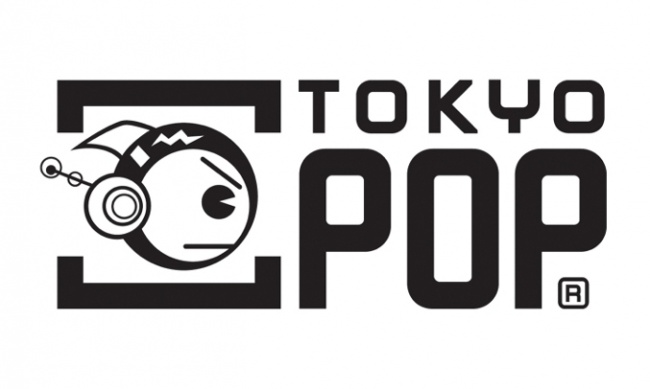
The Market, Why Get Back into Japanese Titles Now, Key Upcoming Titles
Posted by Milton Griepp on March 2, 2018 @ 4:46 am CT
MORE COMICS
From Dynamite Entertainment
August 8, 2025
Here's a preview of Space Ghost #1, published by Dynamite Entertainment.
Dark, Erotic Manga Based on Short Story by Edogawa Rampo
August 8, 2025
Maruo brings his signature “erotic grotesque” style to a dark tale by writer Edogawa Rampo.
MORE NEWS
Thursday July 31, 2025; 'D&D,' 'Riftbound,' and More!
August 8, 2025
The story of Gen Con 2024, as told through ICv2's staff photos, began on the morning of Thursday July 31, 2025 on the convention hall floor.
New Expansion Set for the Classic Fantasy Board Game
August 8, 2025
Hasbro will release HeroQuest: First Light, a new expansion for the classic fantasy board game, into retail.



